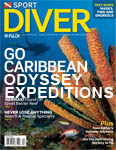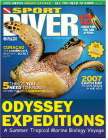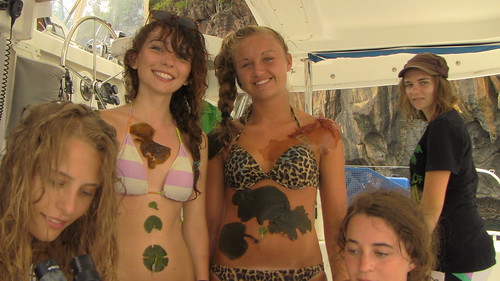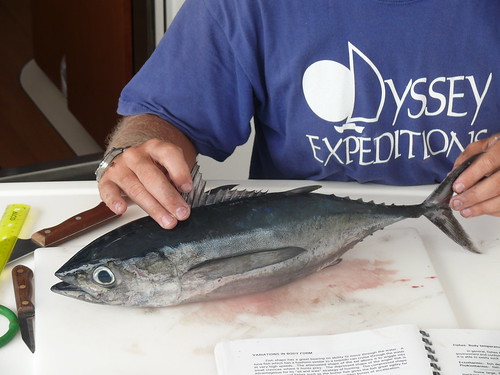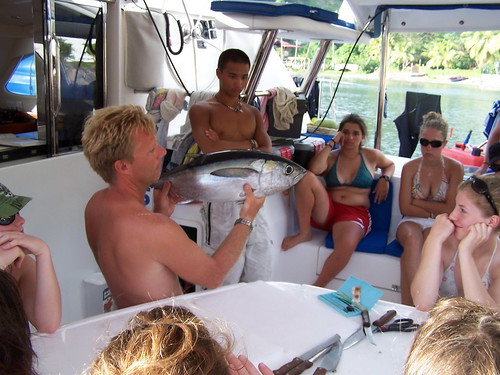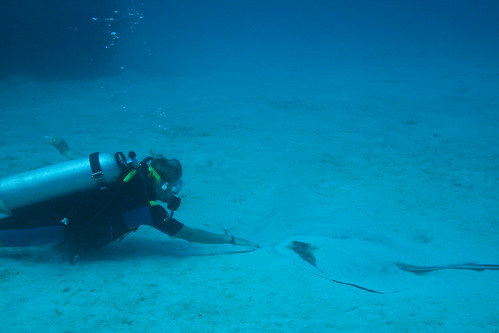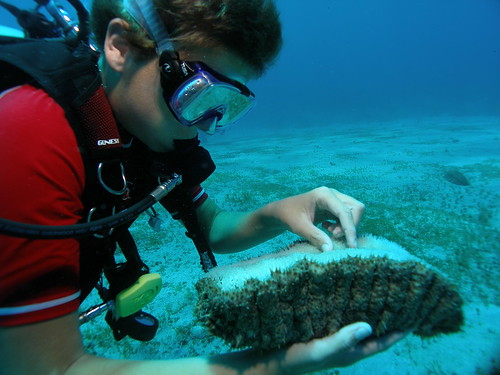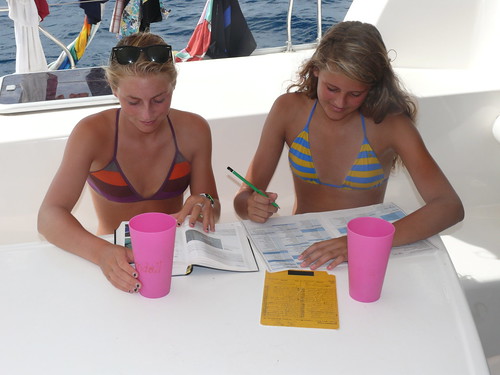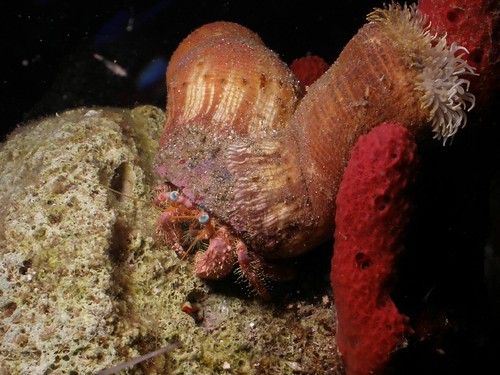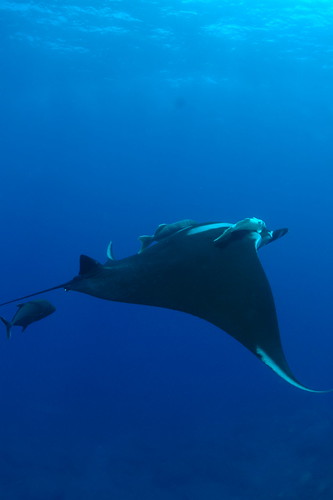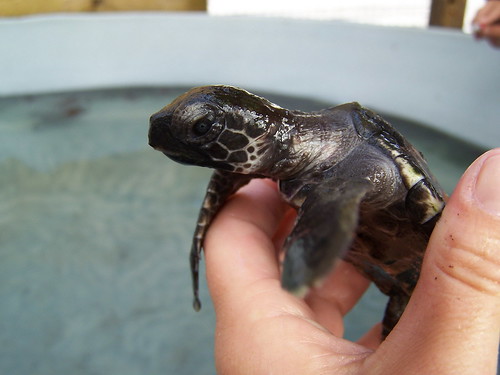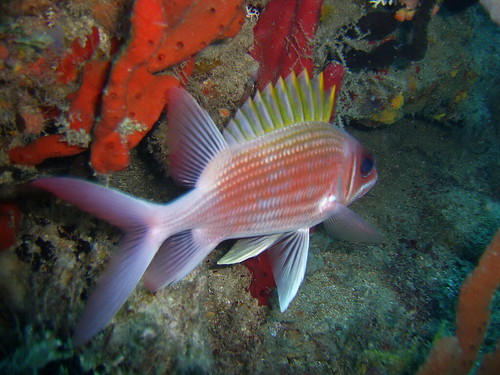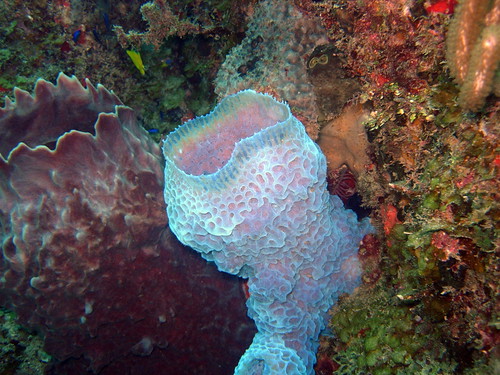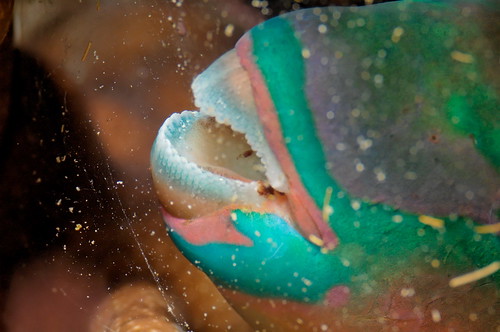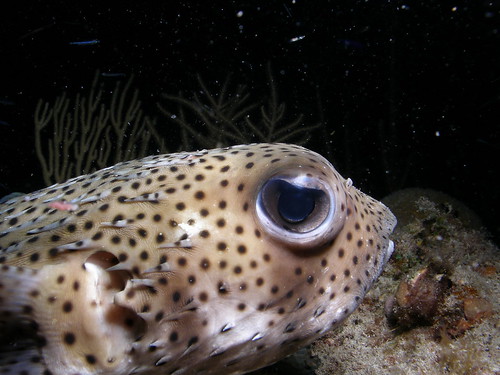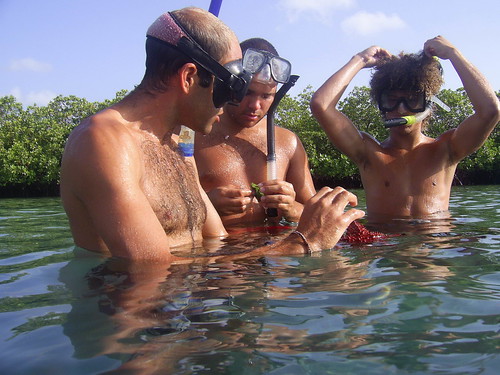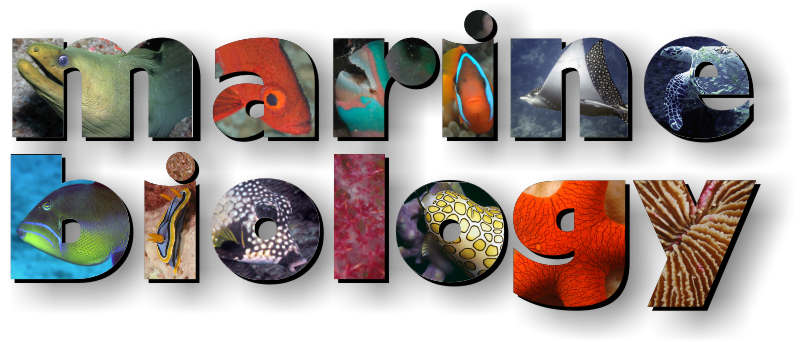
Learn about Marine Biology with Odyssey Expeditions
Teen Caribbean SCUBA & Sailing Summer Adventure Camps
Do you ever dream about the rhythm and magic of life in the sea? We examine the complexity, fragility, pristine beauty and practical importance of our planet's oceans. The magnificent reefs, mangroves, turtle grass beds and rocky intertidal zones serve as your ultimate biological laboratory. Marine biologists accompany your vessel and present marine biology education programs throughout your voyage. You will even have the opportunity to apply new knowledge and techniques during hands-on marine biology environmental service projects designed to be exciting and educational while providing a positive reef contribution!
Explore topics in Biodiversity, Ecology, and Animal Behavior with hands-on labs and service projects specially designed to bring discussion topics to life. Geared for those interested in a career in the marine sciences and those just curious.
'What the heck was that?' is one of the most commonly asked questions of surfacing divers. We start with a full exploration into the diversity of life in the sea, with training to identify the common fishes, creatures, and corals.
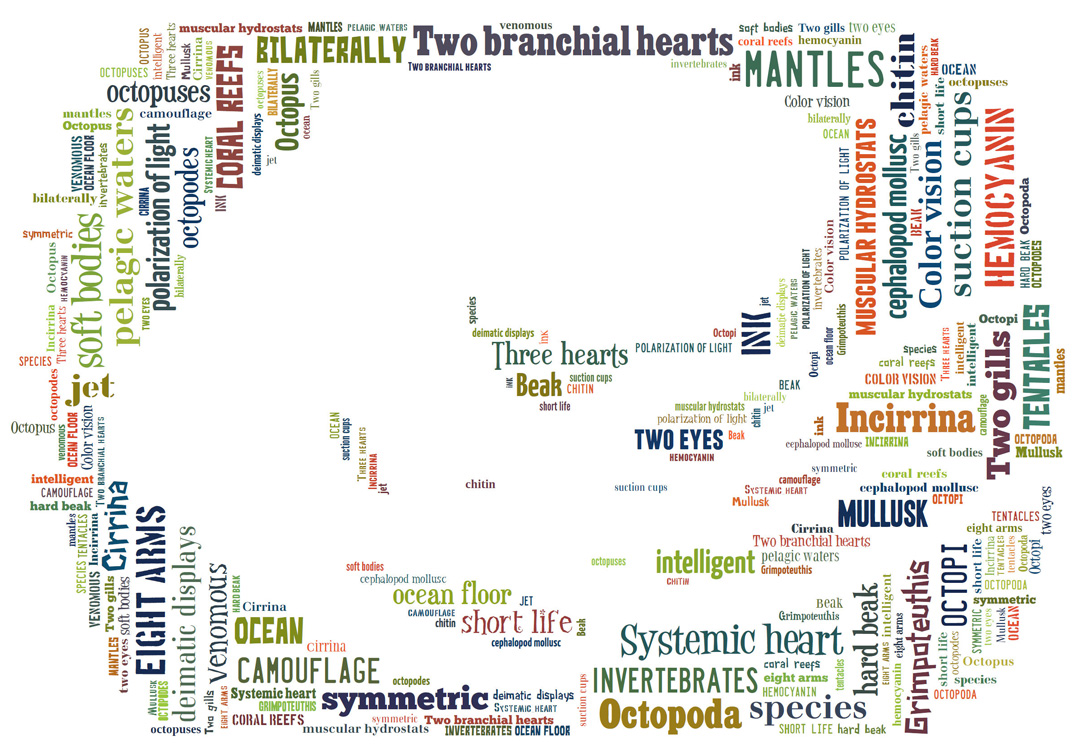
Do you know what a counter current exchange system is? Ever wonder how fish breathe? Ever seen a Tarpon's eyes glow orange at night? Did you know a shark could sense your heartbeat from miles away? Why do some fish school, and what are those that don't missing out on? We will focus in on the lives of fishes to discover unique adaptations in their physiology and morphology and inquire about how these adaptations aid survival. Help out scientists by conducting fish abundance monitoring dives for project R.E.E.F.
What does a barracuda have to do with a mangrove tree? Why is turtle grass called turtle grass, and are there turtles involved? What makes a coral reef so unique compared to its surrounding waters, and why do people refer to them as the 'tropical rain forest of the oceans'? How many bites of coral does a Parrotfish take in a day, and how does this actually help the coral? In Ecology, study symbiosis, life cycles, food-chains, animal behavior, and species competitions and dynamic interactions.
What is meant by coral bleaching? Why are there not as many fish on this dive as the last? What can I do to help protect the ocean ecosystems? Conservation and methods to reduce impacts on ocean ecosystems will be stressed throughout the voyage.
On which side of the transect line do I put this quadrat thingy? Field survey and experimental techniques teach us the excitement and challenges of doing marine biology research underwater!
Using the islands' reefs, mangroves, turtle grass beds and tidal pools as your ultimate biology education laboratory; a hands-on marine biology program is presented by our staff biologists. Vessels are outfitted for underwater investigation with computer facilities, dive station, microscopes and reference resources. The program is designed to interconnect our SCUBA training activities with marine science topics. Students have the opportunity to participate in environmental service coral reef conservation projects.
There are several reasons why it is good for teenagers to learn about marine biology:
- Marine biology helps young people learn about the diversity of life on earth and how all living things are interconnected.
- Studying marine biology can help teenagers develop a sense of stewardship and responsibility for the ocean and its inhabitants.
- Learning about marine biology can also inspire teenagers to take an active role in protecting and conserving marine ecosystems.
- Marine biology can also be a fascinating and rewarding career choice for teenagers who are interested in science and the environment.
- Finally, learning about marine biology can simply be a fun and enjoyable way for teenagers to spend their time and learn about the world around them.
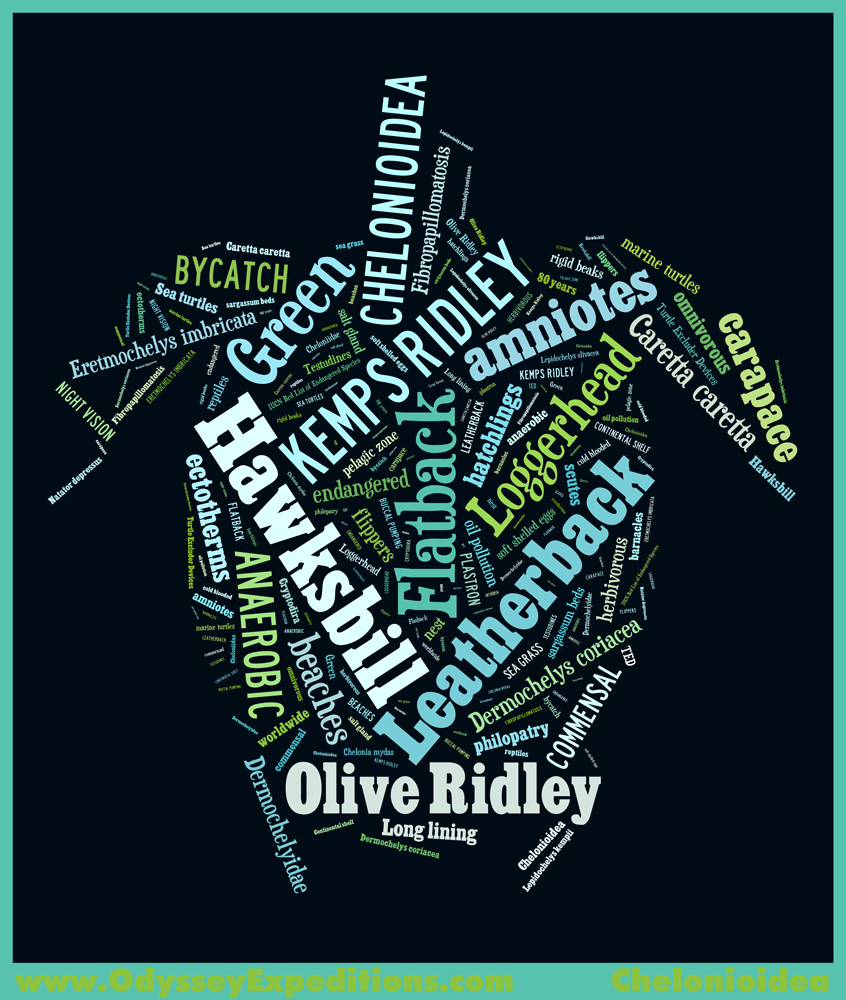
- TOPICS OF INTEREST INVESTIGATED DURING THE VOYAGES
- Oceanography
- properties of sea water
- island formation
- Biology
- invertebrate zoology
- vertebrate zoology
- fish anatomy
- physiology
- Coral Reefs
- formation
- types
- zonation
- health challenges
- Ecology
- life cycles
- food chains
- predation and predatory avoidance
- symbiotic and parasitic relationships
- competition and niches
- animal behavior
- HANDS-ON ACTIVITIES
- Species identification
- Biodiversity surveys of species abundance and distribution
- Beach and reef cleanups
- Animal behavior investigation
- Photography as a tool in science
- Mangrove and turtle grass habitat discovery
- Intertidal, beach, and salt pond habitat discovery
- Artificial reef fish habitat discovery
- Plankton tow and microscopic life
- Fish dissection
- Bioluminescence discovery
- Close-up examination of the major ocean phyla
- Seabird ecology and identification
- School selection and majors discussion
- SPECIAL TOPIC MODULES
- End of the line? Global threats to sharks
- Fish Reproduction
- Mangroves
- Molluscs
- Reef Fish Feeding
- Sea Turtles
- Marine Sedimentation
- Sponges
*Please understand that the above is NOT a contracted course curriculum, and is only an outline of the topics potentially taught during a voyage. Actual voyage topics selected depend upon the particular areas of expertise of the instructing marine biologist as well as with input and feedback from the students on topics they wish to learn more about. Not all topics will be covered and this list should not be used as a contracted curriculum with any school.
Articles in Sport Diver written by Odyssey STUDENTS about the marine biology voyages
